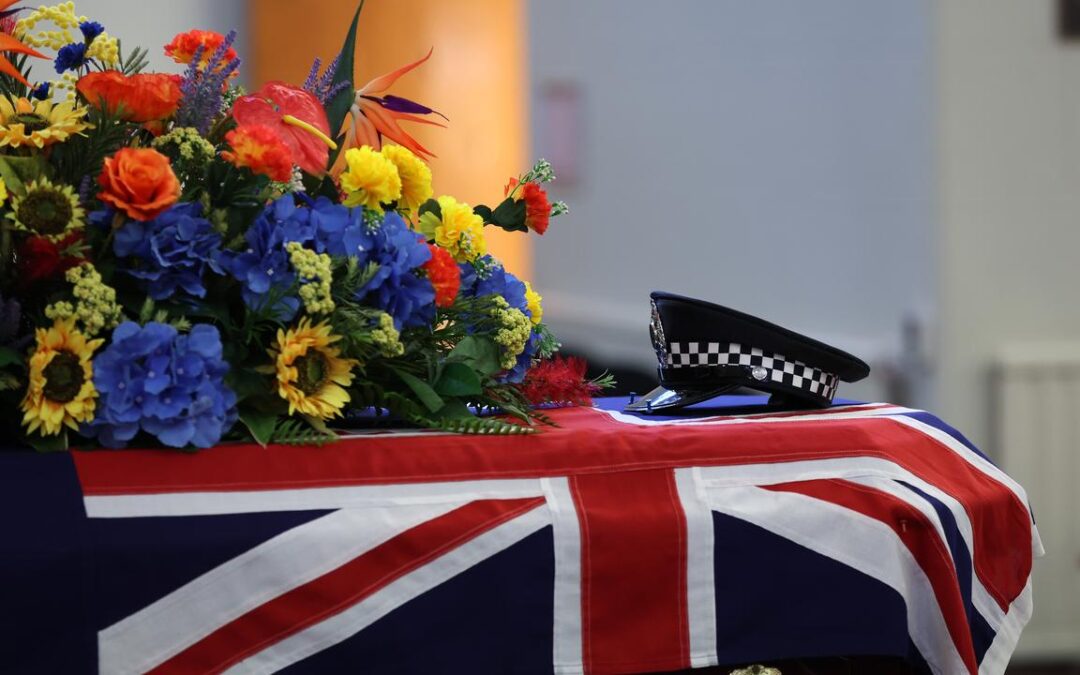
Sea of blue circles officer’s coffin as funeral begins
A sea of navy blue has surrounded the coffin of a young officer gunned down in his prime as the hunt continues for his alleged killer.
Senior Constable Vadim De Waart-Hottart, 34, is being farewelled by loved ones, friends, colleagues and political leaders at a private funeral at the Victoria Police Academy on Friday.
Ahead of the service, the area around the academy in Melbourne’s east was eerily quiet as hundreds of members, alongside police dogs, gathered both inside and outside the on-site chapel.
The chapel’s capacity was doubled from 500 people to more than 1000 people, but it still wasn’t enough, with officers spilling into hallways and overflow rooms.
Prime Minister Anthony Albanese, Chief Commissioner Mike Bush, Victorian Premier Jacinta Allan and Police Minister Anthony Carbines are among the mourners.
A table was set up in the chapel with medals, which Sen Const De Waart-Hottarthe will be awarded, along with a statue of Batman, a childhood favourite.
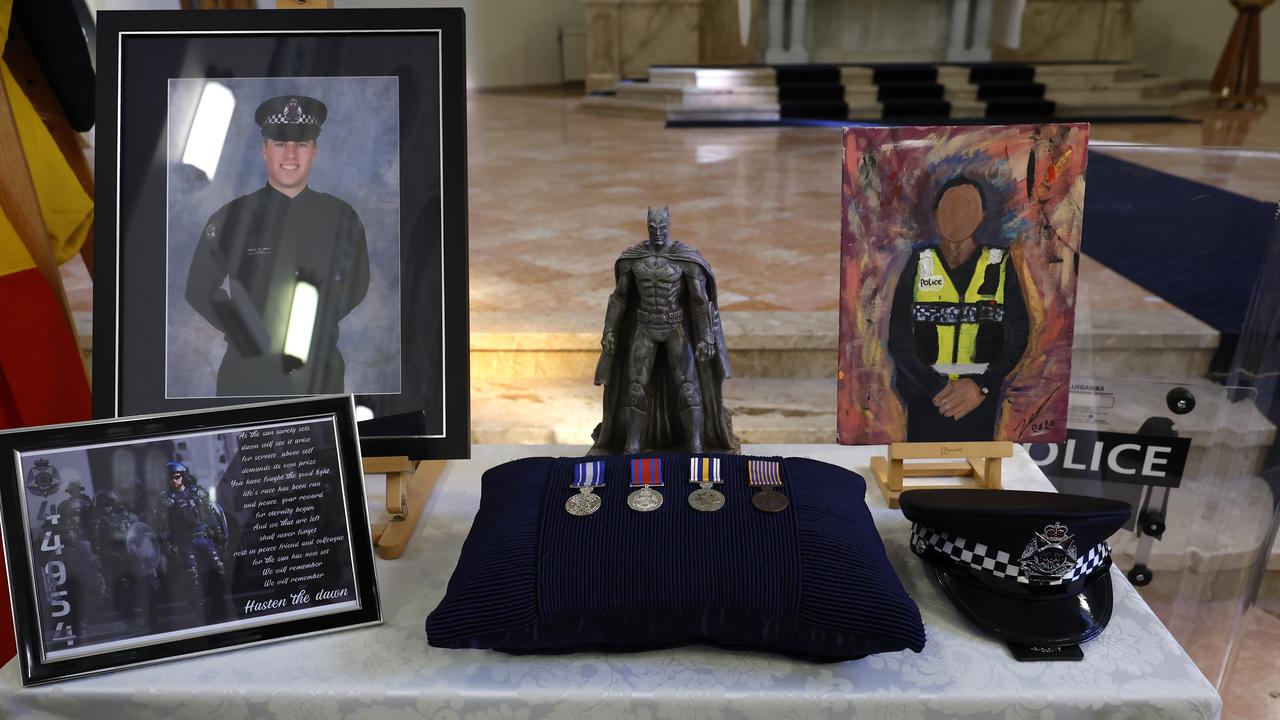
Once the ceremony is over, the police air wing will perform a flyover as his colleagues line the surrounding streets in a guard of honour for the exiting coffin.
A private cremation will follow.
Detective Leading Senior Constable Neal Thompson was also killed during an alleged violent confrontation with Dezi Freeman while serving a warrant at a property in Porepunkah, about 300km northeast of Melbourne, on August 26.

Another officer was badly injured.
State police union boss Wayne Gatt never met the constable but spoke to hundreds of members who knew the fallen officers.
Sen Const De Waart-Hottart had an infectious smile, he said, with people feeling ease his presence and inspired by his lust and curiosity for life.
“A life that gave more than it took, to have been ended in such a way, is an indescribable injustice and a tragedy … we will never forget him,” he said.
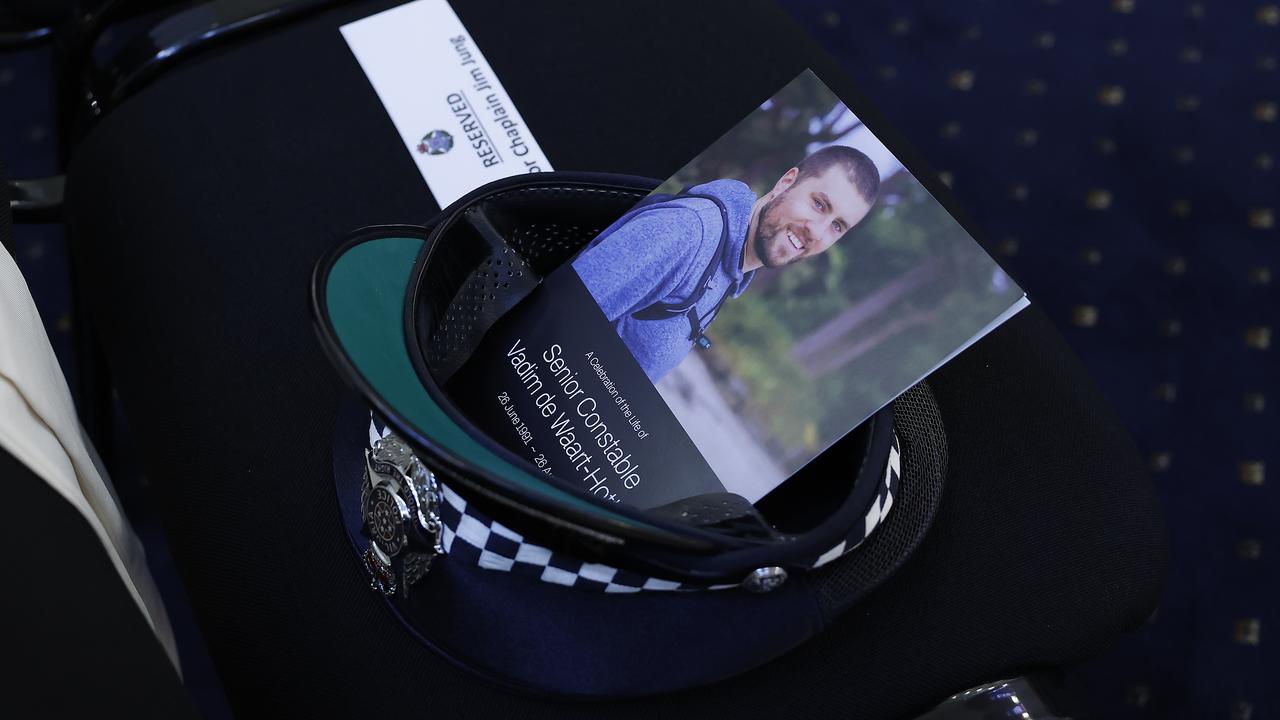
The policing family will again mourn a colleague when Det Lead Sen Const Thompson is farewelled with full honours on Monday.
Both funerals are private and members of the public were been asked not to attend.
Sen Const De Waart-Hottart grew up in Belgium before joining Victoria Police for what was shaping up to be a long, successful career until his life was cut short in the line of duty.
He had recently arrived at Wangaratta in Victoria’s northeast on a temporary assignment from his role in the public order response team.
Sen Const De Waart-Hottart was fluent in four languages and proud to have purchased his first home in Melbourne in recent years.
An accomplished scuba diver who always picked up a bottle of local gin on his international adventures, he revelled in motorcycle trips with friends and colleagues closer to home.
Sen Const De Waart is survived by his parents, Carolina and Alain, who live in Belgium, and his Switzerland-based younger brother, Sacha.
He also leaves behind aunties, uncles and cousins in Melbourne.
A 44-year veteran, Victoria Police Assistant Commissioner Glenn Weir has attended too many funerals for fallen colleagues.
“Today and Monday will be really tough days,” he told ABC Radio Melbourne.
“We wrap our arms around our people and we get on with it, because that’s what we have to do.”
Hundreds of police members and Australian Defence Force personnel continue to scour the high country looking for Freeman, 56, who fled into bushland after the shootings.
More than 100 properties in the Alpine area have been examined and police believe someone knows where he is hiding out.
Freeman shares views consistent with the sovereign citizen movement and is considered to be an experienced bushman.
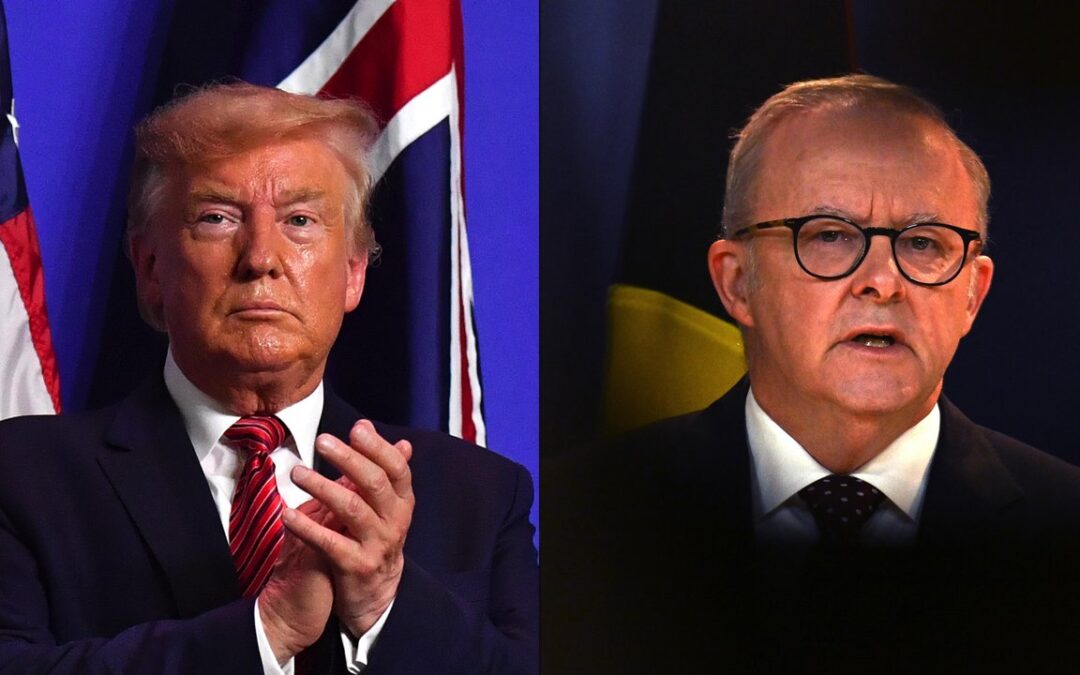
PM gets a call with Donald Trump, no word on a meeting
Prime Minister Anthony Albanese has had a “warm and constructive” phone call on trade and security with US President Donald Trump.
Mr Albanese revealed the call – the fourth between the pair – in a social media post just before midnight on Thursday.
“We discussed our trade and economic relationship as well as areas for growth including critical minerals,” he said in the post on X.
“We also discussed shared US-Australia security interests.”
But there was no word on when the two leaders will hold their first face-to-face meeting, which Australia has been pursuing since Mr Trump’s elevation to the presidency in November.
The two were expected to have talks in June on the sidelines of a G7 summit in Canada but the meeting was cancelled after Mr Trump returned to the US early to deal with issues in the Middle East.
The call comes just weeks ahead of a United Nations general assembly meeting at which Australia is expected to join the UK, France, Canada and others in pushing for the recognition of a Palestinian state.
It also comes amid concerted efforts by Australia to get relief from Mr Trump’s tariffs regime, after he imposed a base line levy of 10 per cent on Australian goods imports to the US and a 50 per cent tariff on steel and aluminium.
At the same time, the US is reviewing the AUKUS trilateral security alliance, under which Australia is expected to spend $386 billion on nuclear powered attack submarines, to ensure it aligns with Mr Trump’s “America first” agenda.
The US has been pushing Australia to raise its defence spending to 3.5 per cent of gross domestic product.
The government is currently spending 2.02 per cent with a view to increasing that sum to 2.33 per cent of GDP by 2033/34.
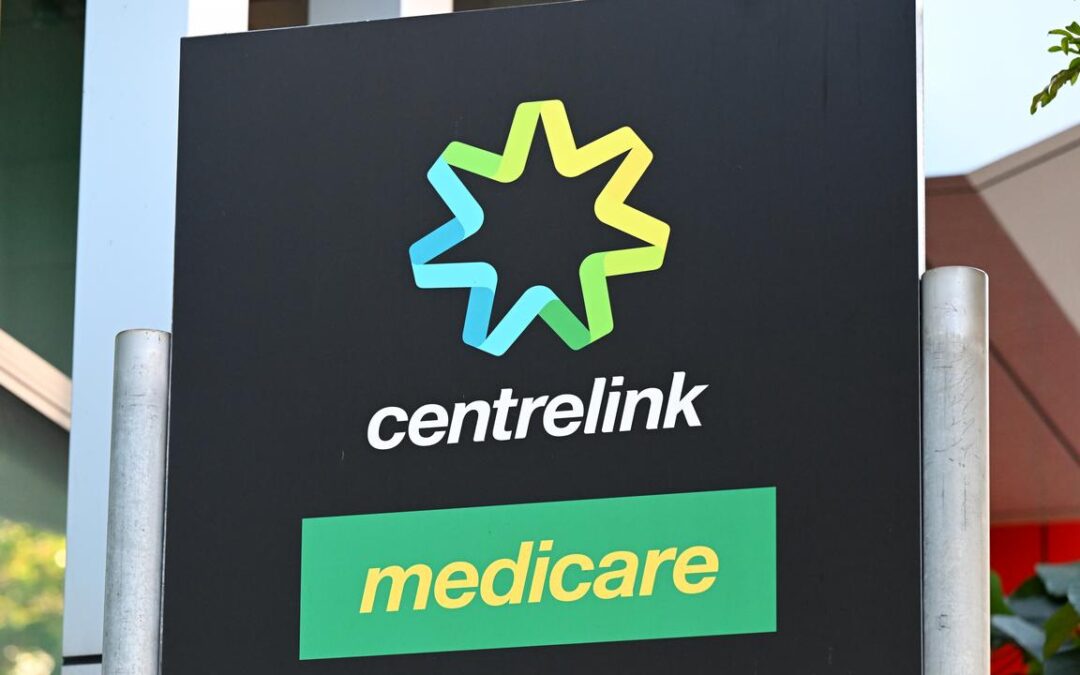
Money can’t replace people: robodebt victims after win
Nathan Knox was a young man paying off a crippling robodebt when a split second decision stopped him from stepping in front of a train.
He is one of the hundreds of thousands of people impacted by the unlawful robodebt scheme, which hunted down welfare recipients for money they didn’t owe.
Prime Minister Anthony Albanese’s government has agreed to pay an additional $475 million to its victims, marking a record-breaking class-action settlement.
The scheme operated between 2015 and 2019, and used automated data from the tax office to issue debt notices.
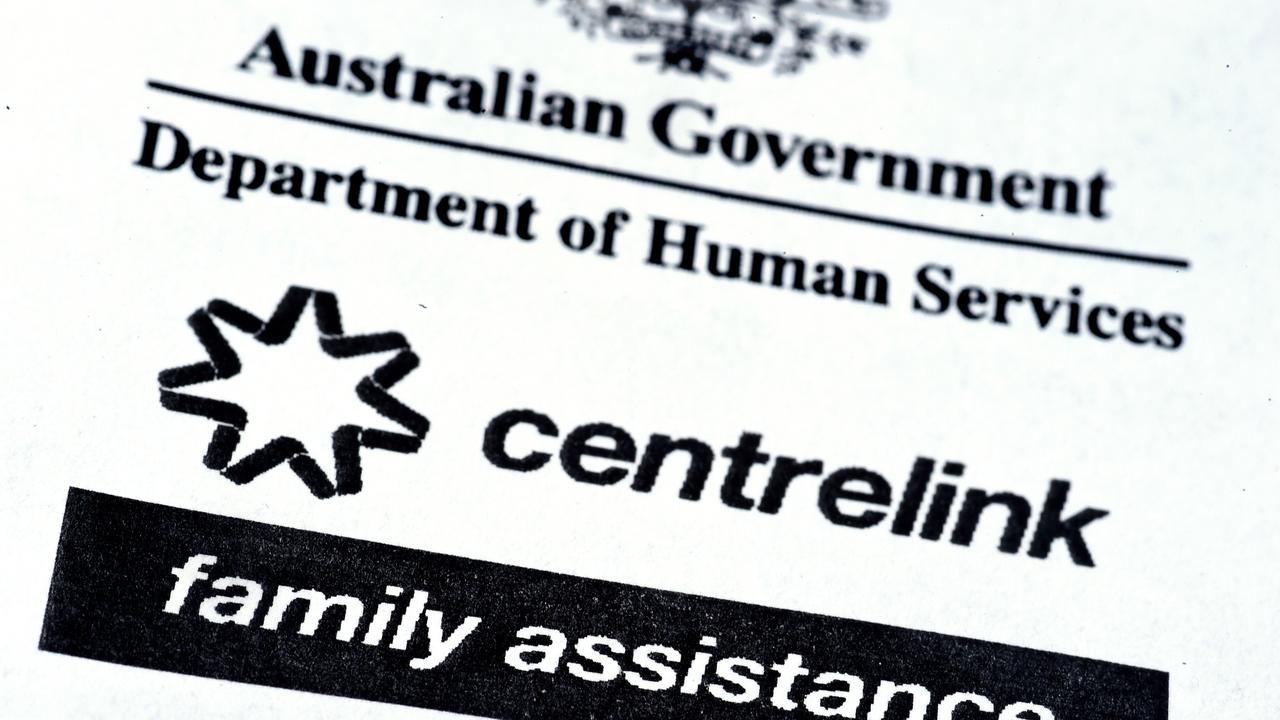
This resulted in almost 800,000 false debts that were raised against more than 500,000 recipients.
Mr Knox was in his early 20s and working, when he received a robodebt worth about $15,000 after a period of JobSeeker payments.
The debt notice turned his world upside down as a young person managing employment and paying bills.
“There was a moment there where I could have potentially stepped in front of a train … you have that split moment and unfortunately, there are people out there who did make that split decision, and they’re no longer with us,” he told AAP.
A royal commission into robodebt found there were at least three known suicides as a result of the scheme, but was confident of further tragedies.
The scheme forced many people into dire financial circumstances, as they took out loans and sold their cars or ran down savings to pay off debt.
Mr Knox, now in his mid-30s and raising a young family, said the size of the settlement was a major win.
“No amount of money is going to return those individuals and it’s really sad,” he said.
“It says the government was wrong and what they did was unjust.”
Gordon Legal lodged an appeal after the royal commission found the debt collection scheme was “neither fair nor legal”.
Partner Andrew Grech said the settlement provided victims with some measure of redress.
“Money can never fully compensate for what they’ve been through, and we all understand that but at least this provides them with some sense that they’re being listened to,” he said.
The federal court must first approve the settlement which can take up to six months, Mr Grech said.
“We hope for it to be completed as soon as possible,” he said.
The largest settlement in Australia’s legal history will mean the policy disaster has cost taxpayers more than $2.4 billion.
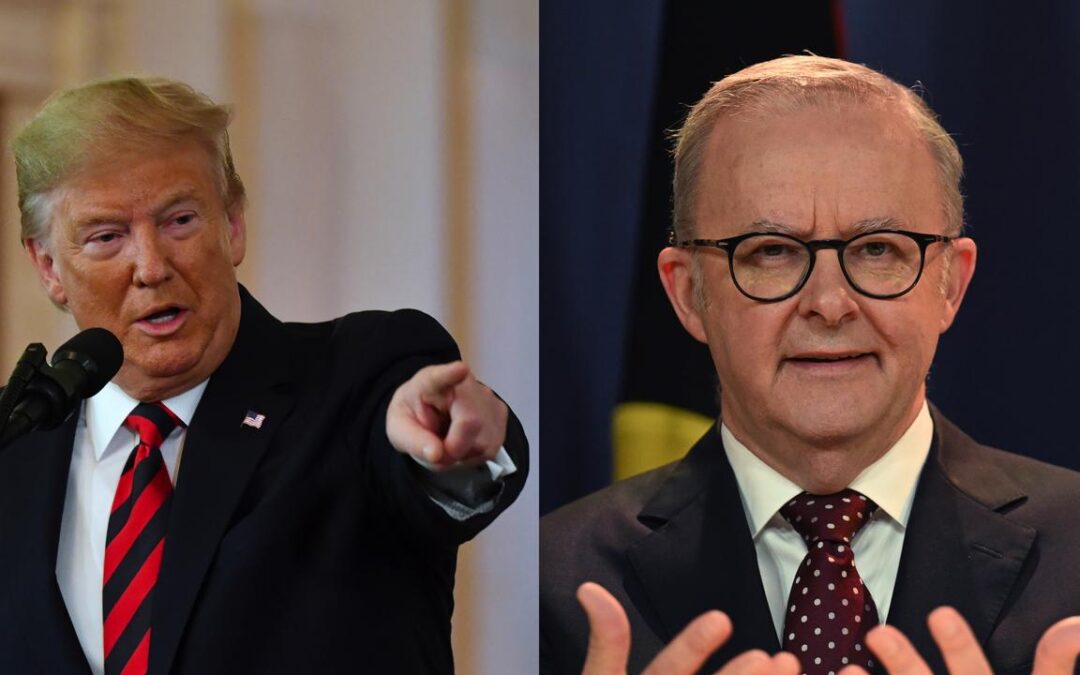
PM discusses trade, critical minerals with Trump
Prime Minister Anthony Albanese says he has had a “warm and constructive” call with US President Donald Trump.
“We discussed our trade and economic relationship as well as areas for growth including critical minerals,” Mr Albanese said in a post on social media just before midnight.
“Shared US-Australia security interests,” were also discussed, Mr Albanese said.
Mr Albanese has yet to meet Mr Trump in person since the re-election of the prime minister and the president.
The two were expected to see each other in June on the sidelines of a G7 summit in Canada but the meeting was cancelled as Mr Trump returned to the US early.
Deputy Prime Minister Richard Marles met US Vice President JD Vance in Washington DC last week.

Solemn farewell for officer slain in the line of duty
An avid traveller with the world at his feet, Senior Constable Vadim De Waart-Hottart should be plotting his next holiday adventure.
Instead, policing colleagues will form a guard of honour as the 35-year-old is taken on one final journey to his resting place.
The 35-year-old Belgian native moved across the globe to join Victoria Police for what was shaping up to be a long, successful career until his life was tragically cut short in the line of duty.
His colleague, Detective Leading Senior Constable Neal Thompson, was also killed, while another officer was badly injured in a violent confrontation with Dezi Freeman while they were serving him a warrant last week.
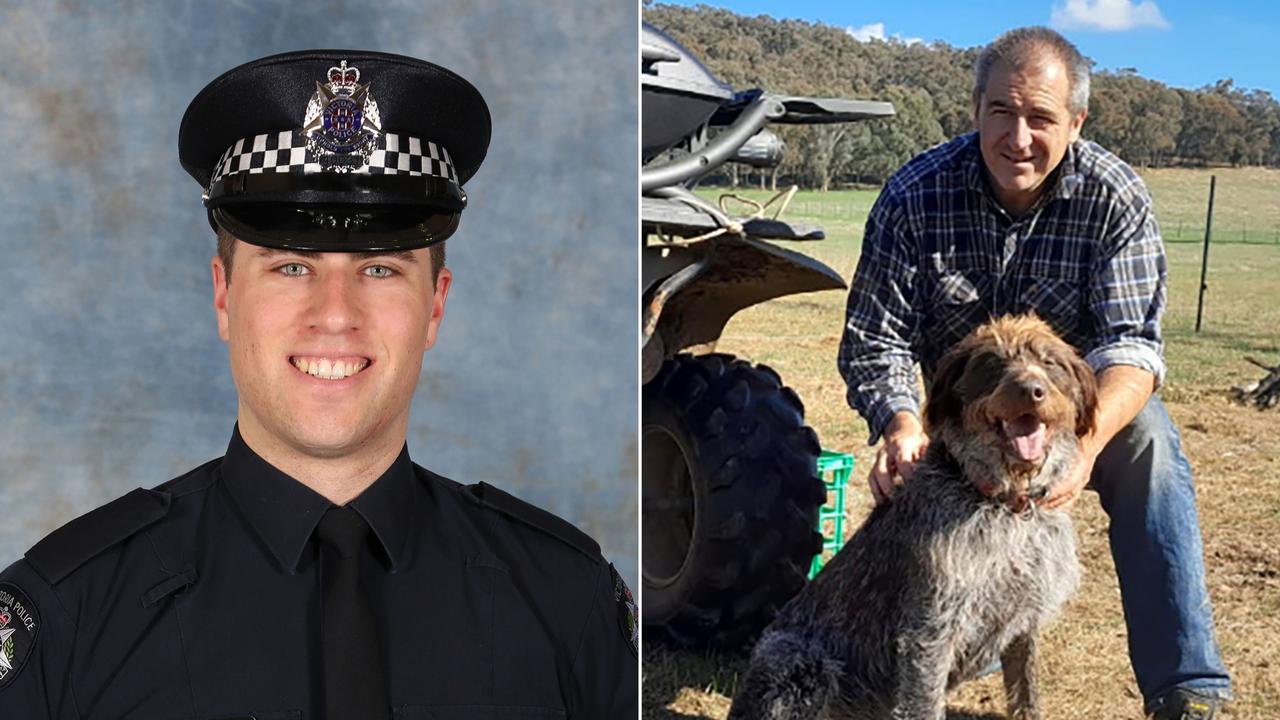
Sen Const De Waart-Hottart had recently arrived in Wangaratta in Victoria’s high country for what was meant to be a temporary assignment from his role in the public order response team.
Described as an eternal optimist by colleagues in the force, he was fluent in four languages and proud to have purchased his first home in Melbourne in recent years.
An accomplished scuba diver who always picked up a bottle of local gin on his international adventures, closer to home, he revelled in motorcycle trips with friends and colleagues.
Heartbroken loved ones, friends and colleagues will farewell him at a private funeral on Friday at the Victoria Police Academy in Melbourne’s east – the same place he started his police career just seven years ago.
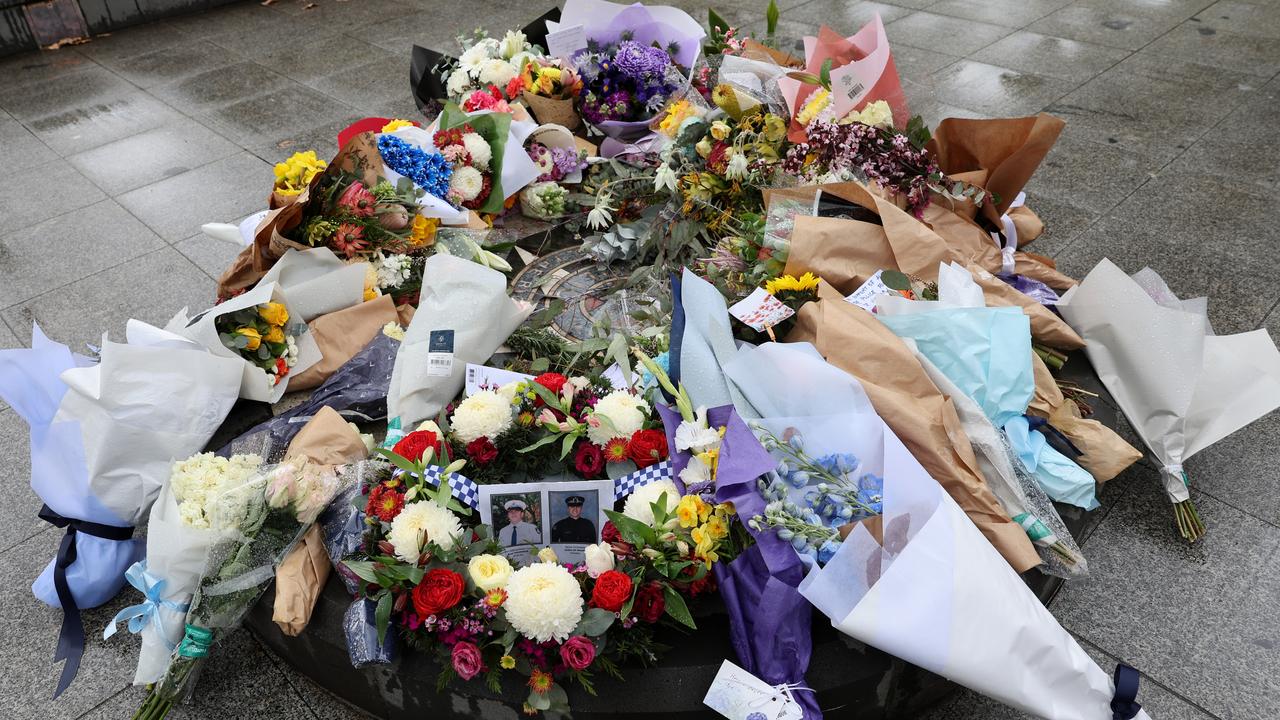
The Police Air Wing will perform a flyover as his colleagues line the surrounding streets and pay their respects following the service.
Snr Const De Waart is survived by his parents, Carolina and Alain, who live in Belgium, and his Switzerland-based younger brother, Sacha.
He also leaves behind aunties, uncles and cousins in Melbourne.
The policing family will again mourn a colleague gone far too soon when Det Lead Snr Const Thompson is farewelled with full honours on Monday.
Both funerals are private and members of the public have been asked not to attend.
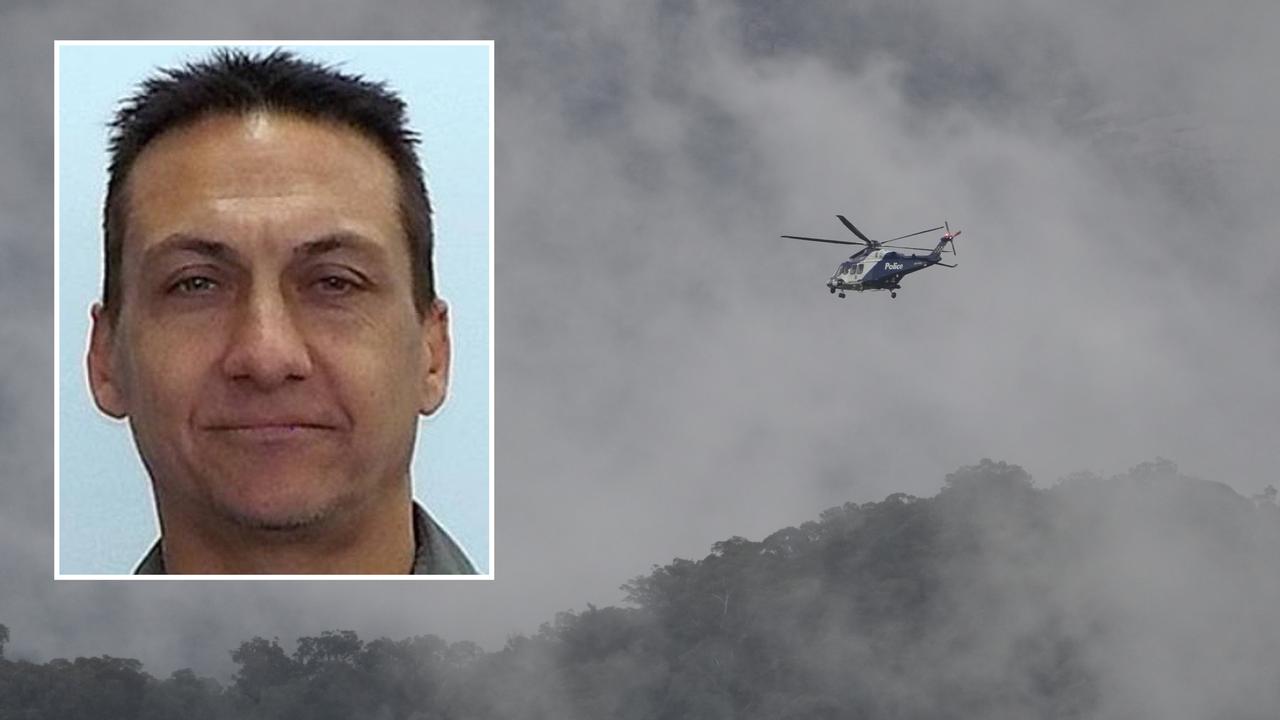
Hundreds of Victoria Police members and Australian Defence Force personnel continue to scour the high country looking for Freeman, who fled into bushland after the incident at Porepunkah, 300km northeast of Melbourne.
Investigators believe he is alive, prompting the force and his wife to issue pleas for him to give himself up through a surrender plan.
More than 100 properties in the Alpine area have been searched and police believe people possibly know where Freeman is hiding out.
He shares views consistent with the sovereign citizen movement and is considered to be an experienced bushman, with experts suspecting he has deposits of food and water stashed around his local area.
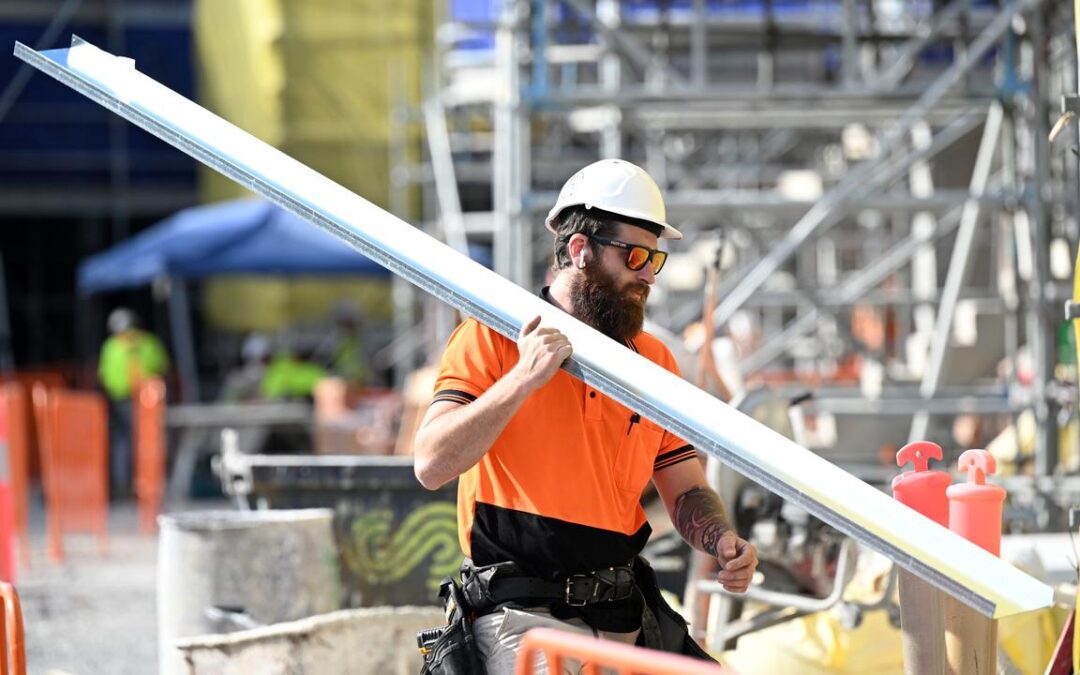
Knocking down tradie border walls in treasurers’ sights
Treasurer Jim Chalmers and his state and territory counterparts have been urged to move quickly to knock down “archaic, colonial-era” rules holding back the economy when they meet for the first time since an economic roundtable.
The lead-up to Friday’s Council on Federal Financial Relations meeting has been dominated by discussion about a road user charge on electric vehicles.
But the federal government hopes there will be more progress on nationalising the patchwork of state and territory licensing laws that make it harder for workers to move across borders, increasing compliance costs and hampering productivity.
Aligning occupational requirements across jurisdictions and with overseas standards could yield Australia’s economy a windfall of almost $4 billion per year, the government’s in-house think tank the Productivity Commission found.
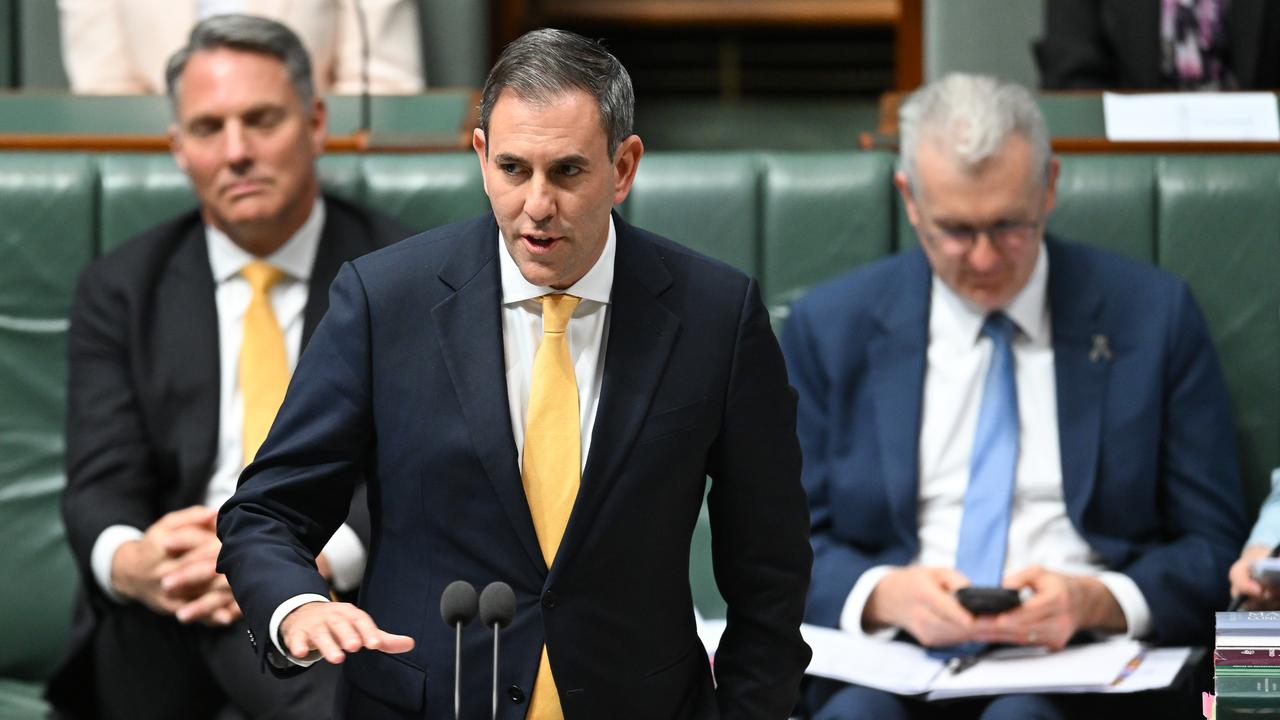
The government has started implementing a national licensing scheme for electricians, which Dr Chalmers said would ease workforce shortages holding back housing supply.
Innes Willox, chief executive of employer organisation Ai Group, said Australia’s rigid state-based occupational licensing regime was “one of the last vestiges of our colonial era”.
“Archaic rules preventing tradies from working seamlessly in both Albury and Wodonga or Coolangatta and Tweed Heads are simply ludicrous in a modern economy,” he said.
“The treasurers’ meeting is hopefully an important step in ending outdated rules and regulations generally that hold our economy back.
“We hope the treasurers move quickly.”
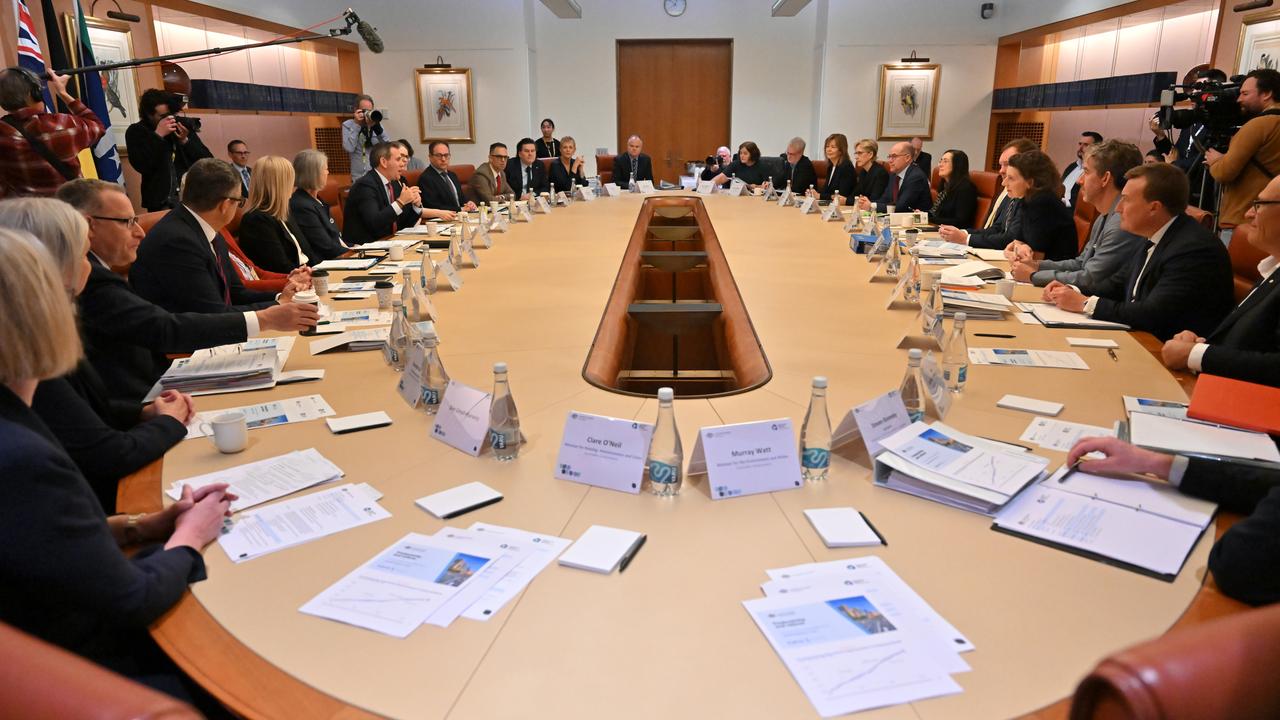
Dr Chalmers said the meeting was all about advancing the consensus reached at the economic reform roundtable.
“So many of the productivity levers exist in the states, and that’s why we work so closely with them and why tomorrow’s meeting is so important,” he told parliament on Thursday.
“A big focus will be cutting red tape, making it easier for skilled workers to go where they’re needed most, so that tradies can save time and money.”
Also on the meeting agenda will be faster project approvals, harmonising regulation, boosting housing supply and designing a road user charge, Dr Chalmers said.
A commitment to progress a national model to ensure EV drivers pay their fair share of road maintenance costs was one of the key outcomes from the August economic roundtable.
South Australia and Victoria have been tasked with drawing up an options paper detailing what a potential levy on EV users could look like, while NSW has legislated a 2.974c per km levy on EVs to come into effect by 2027 or when they make up 30 per cent of new sales.
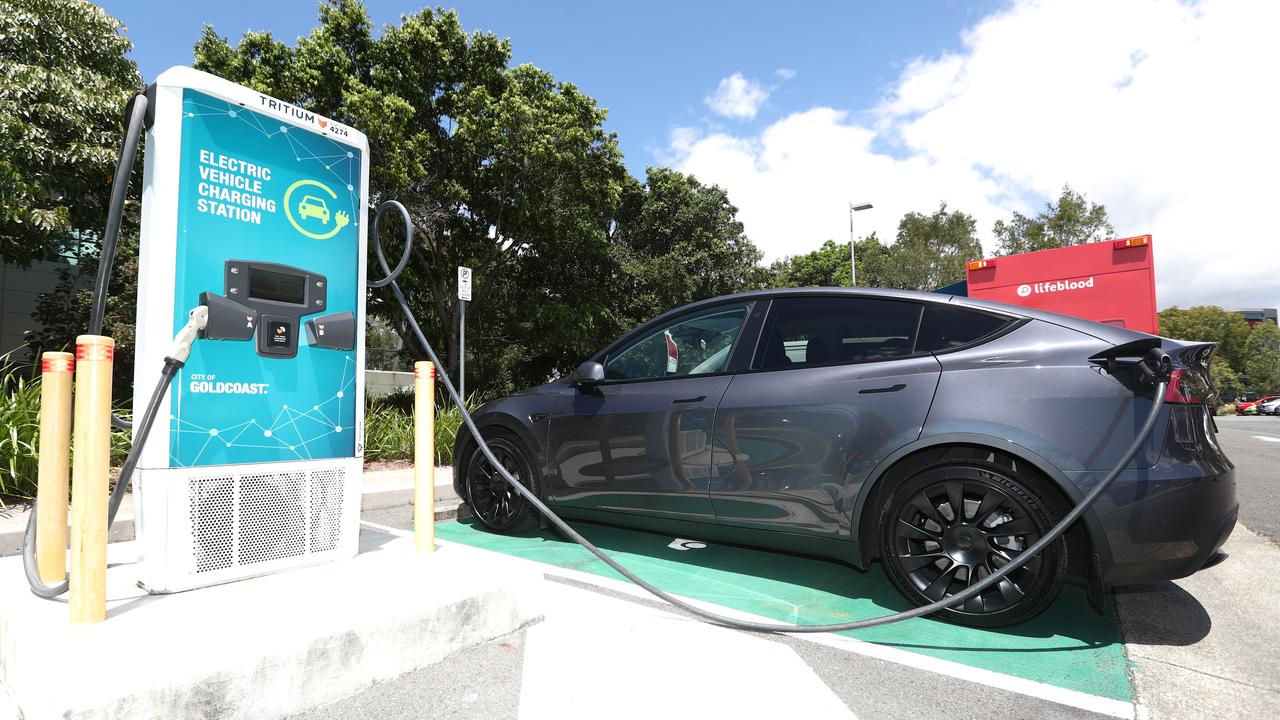
But a 2023 High Court ruling declaring a state-imposed levy unconstitutional has put the NSW law in limbo and left the ball in the federal government’s court.
Dr Chalmers has ruled out applying the charge to all road users, as that would mean double-taxing petrol and diesel drivers who already pay for road maintenance through the fuel excise.
But the treasurer is not expecting to determine the final detail of the model at the meeting.
Rather, he would listen to the state and territories’ views and discuss the broader principles that would drive the policy design, making sure it does not deter the uptake of EVs, he said.
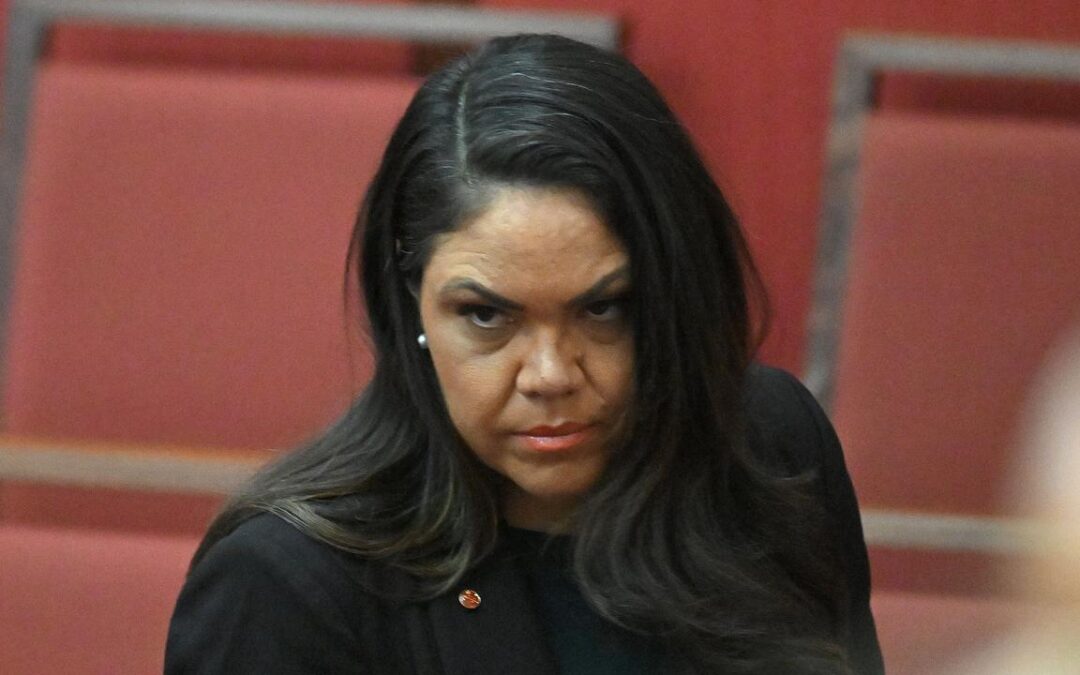
‘Taken a dig’: senator slammed for migration vote claim
A coalition senator’s claim migration policy is used to bolster votes has been widely rejected and risks fuelling harm to migrant communities, for questionable political pay-off, critics say.
NT senator Jacinta Nampijinpa Price said she did not believe she had anything to apologise for after claiming the Labor government “allow those in that would support their policies”, pointing to the Indian diaspora.
The senator’s effort to bolster her argument had undermined the nation’s non-discriminatory immigration policies and risked eroding public trust, Sikh Association of the Northern Territory president Harpal Singh told AAP.
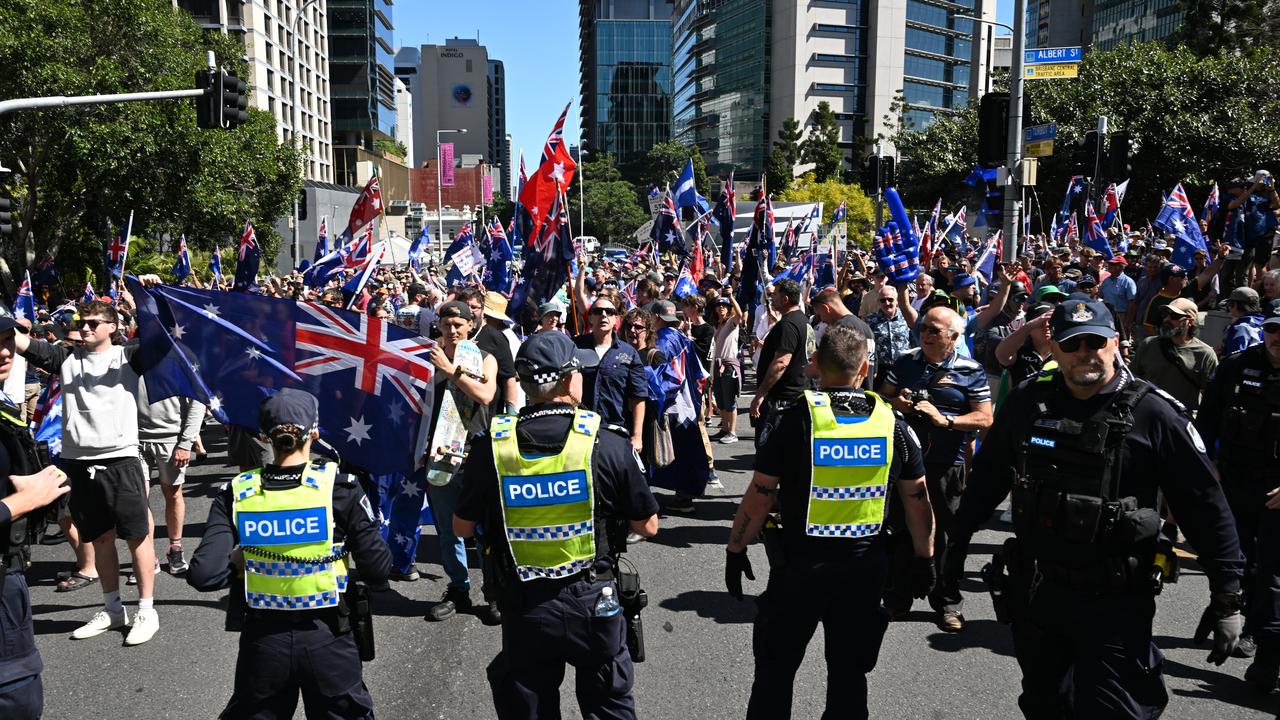
“She has taken a dig, but it has lasting impacts,” he told AAP.
“She should at least apologise, people make mistakes right?
“But the problem is the timing.”
Violent and widely condemned anti-immigration rallies around the nation have stoked debate about Australia’s immigration policy.
“Just after those protests, saying something like this, it just alienated people from Indian ethnicity,” Mr Singh said.
“It’s a shame.”
A former president of the Indian Cultural Society of the Northern Territory says the NT senator’s comments do not reflect widely held views.
“I don’t know what motivated her to pick a particular community group … it might have been that her thoughts were misdirected or she wasn’t advised properly,” Bharat Desai told AAP.
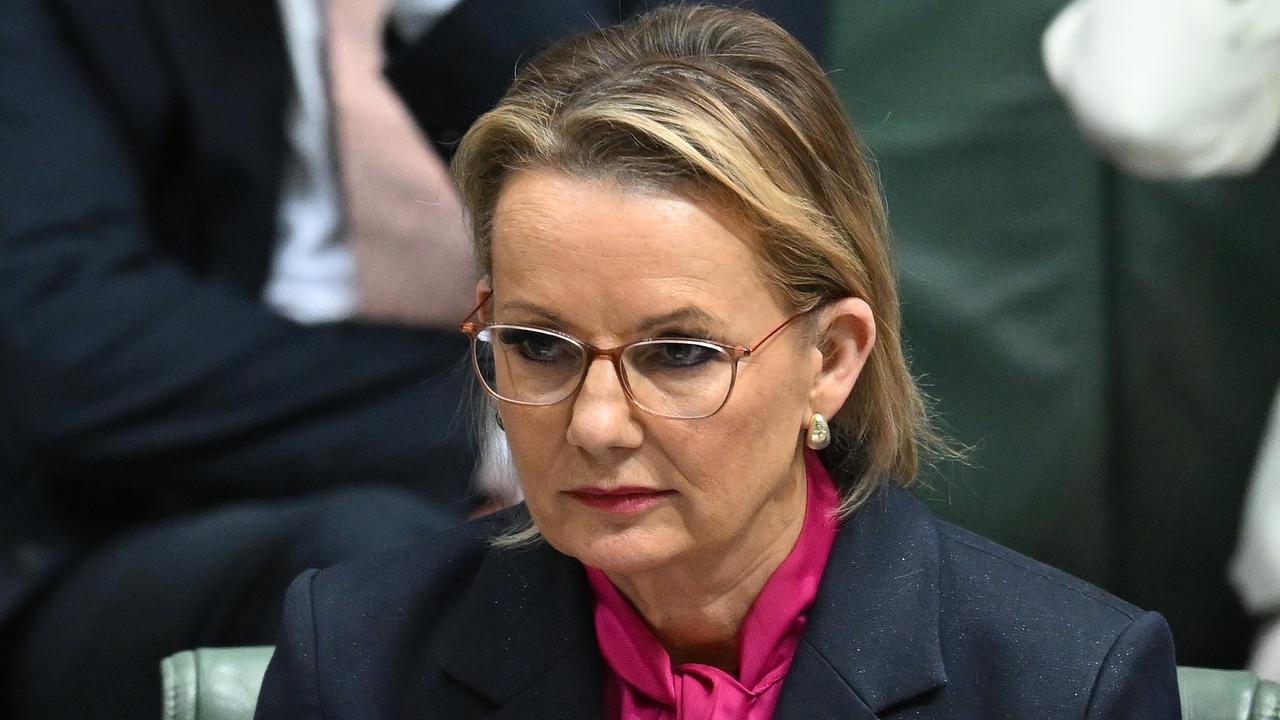
Picking on particular groups for political purposes was nothing new but can still cause harm, he said.
“There is always a bit of angst,” Mr Desai said.
But he said Indians in Australia should not have to worry.
“Just go about doing your good job you’ve been doing for so many years for this country and contributing,” Mr Desai said.
Opposition Leader Sussan Ley did not support the senator’s comments.
“I’m fighting for every single Australian, no matter where you came from, and our Australian Indian community are amazing,” Ms Ley told Sky News on Thursday.
Multicultural Affairs Minister Anne Aly told parliament social cohesion would remain fragile “as long as we treat people with gritted-teeth tolerance instead of mutual respect”.
The government has released a forecast of 185,000 migrants for the year, not including temporary migration such as international students.
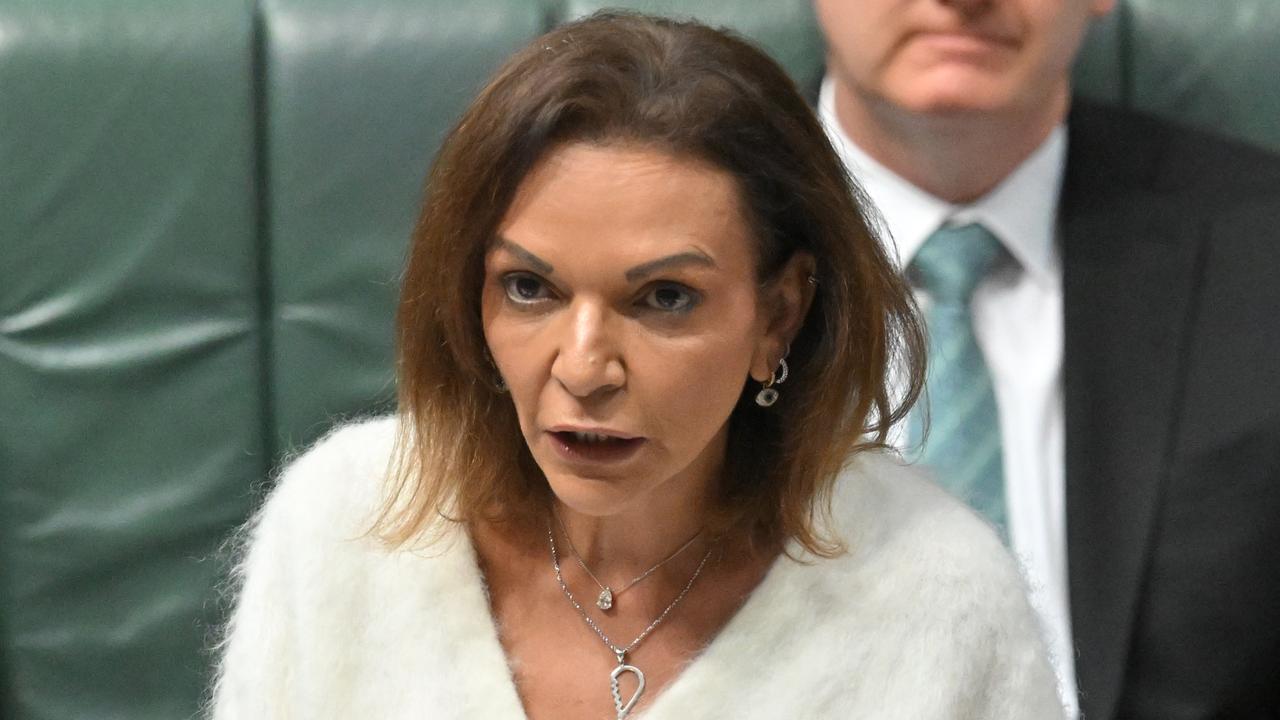
Senator Price said party discussions were ongoing about that figure.
“This is an issue that we will form a position on at a later point,” she said.
But migration is no longer the fertile ground for political point-scoring it might have once been.
Migration expert Anna Boucher told AAP people were more likely to vote on the basis of class than ethnicity.
“When the population is so multicultural, a lot of people are going to take offence at a suggestion that the migration policy is driven by race, when we’ve had a non-discriminatory program since the 1970s,” the University of Sydney associate professor said.
Migration-based politics is only ever likely to win a small proportion of votes.
“And as the population shifts it’s going to become less and less acceptable,” A/Prof Boucher said.
“It actually is a good thing, it shows that we’re maturing as a multicultural political society.”
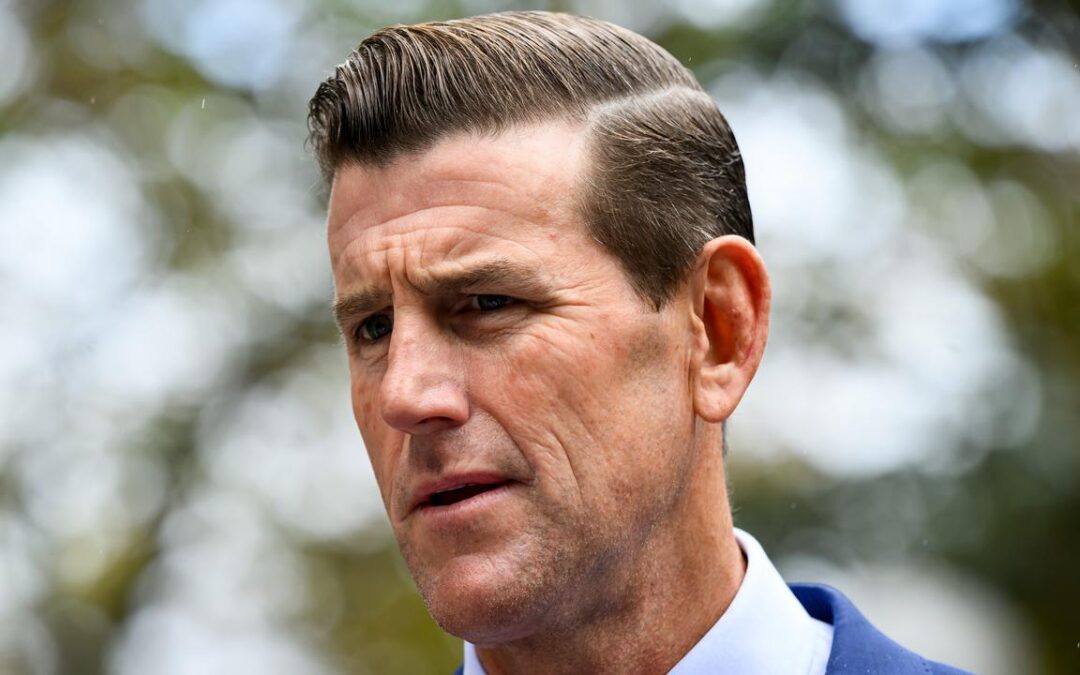
Roberts-Smith’s appeal bid reaches end of the road
Australia’s most decorated soldier Ben Roberts-Smith’s appeal of a defamation case that branded him a war criminal has been shot down by the High Court, spelling the end of a seven-year legal battle.
The former special forces soldier had appealed his 2023 Federal Court loss after he sued Nine Newspapers for defamation over reports claiming he was complicit in the murder of four unarmed civilians in Afghanistan.
Mr Roberts-Smith disputed Justice Anthony Besanko’s findings the allegations were substantially true, arguing that was not backed up by sufficient evidence for such serious claims.
On Thursday, Australia’s highest court refused the former soldier’s application to appeal the Federal Court findings.
It came on the same day the recipient of Australia’s highest two military honours – the Victoria Cross and Medal for Gallantry – was ordered to pay a lump sum of Nine’s legal costs for the unsuccessful Federal Court appeal.
The costs of the 110-day trial and the 10-day appeal are estimated to exceed $30 million.
Mr Roberts-Smith’s High Court bid had claimed the Full Court of the Federal Court made an error in assuming he had accepted some allegations which were not re-contested during the appeal.
The articles, published in 2018, included claims Mr Roberts-Smith kicked a handcuffed man off a cliff and ordered his execution, and machine-gunned another prisoner, taking his prosthetic leg home as a souvenir drinking vessel.
The alleged war criminal has maintained his innocence and has not been charged with criminal wrongdoing.
Justice Besanko found he machine-gunned an unarmed prisoner in the back during a 2009 raid on a compound codenamed Whiskey 108, taking the man’s prosthetic leg back to Australia to use for drinking beer.
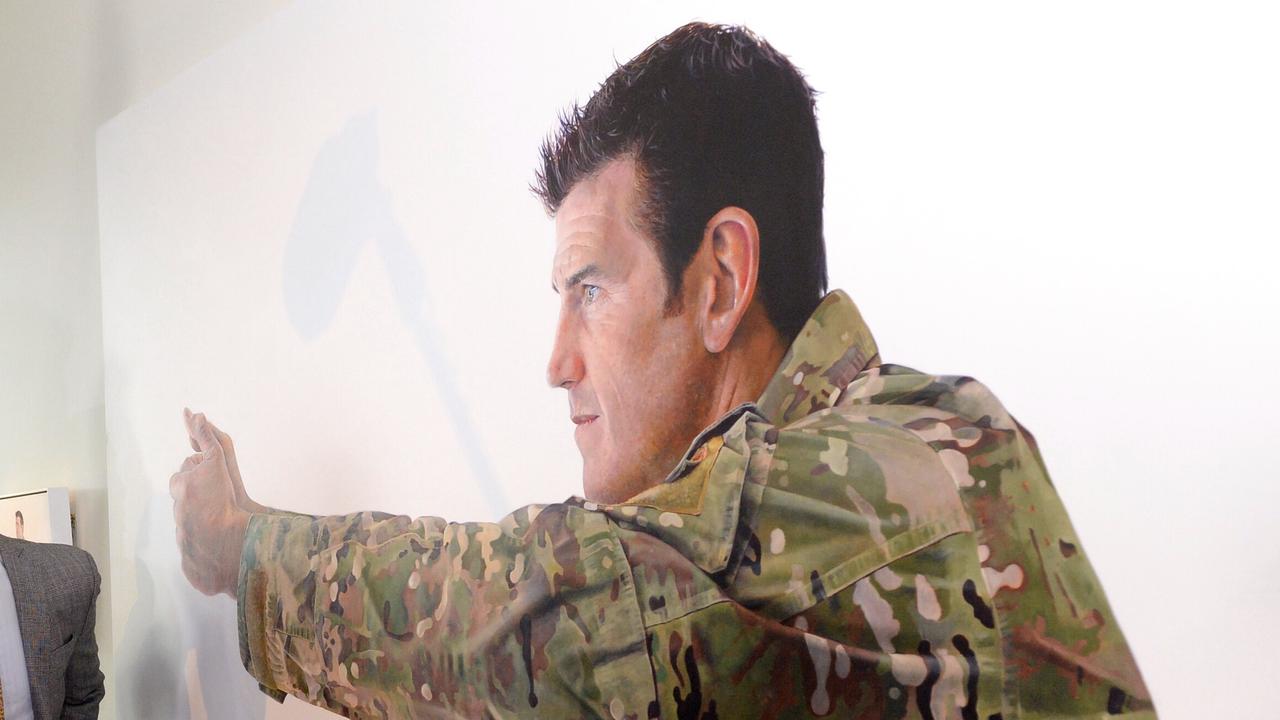
Mr Roberts-Smith also stood silent while a rookie soldier was ordered to execute an elderly Afghan prisoner so he could be “blooded”.
Justice Besanko found one of the newspapers’ central claims – that Mr Roberts-Smith had kicked unarmed and handcuffed Ali Jan off a 10-metre cliff and then ensured he was shot – was true.
As evidence of his guilt, Mr Roberts-Smith attempted to cover up the unlawful killing at Darwan in September, 2012 by removing Mr Jan’s handcuffs and planting a radio alongside his lifeless body before he was photographed.
Mr Roberts-Smith then told fellow SAS soldiers who witnessed the incident to stick to an approved story Mr Jan was a spotter who they killed legitimately.
The appeal judges firmly rejected the former SAS corporal’s claim he did not know allegations of the Whiskey 108 murder were true.
When dismissing his appeal in May, the judges noted there were three eyewitnesses to the murder, which they said was a “problem” for Mr Roberts-Smith.
In a decision on legal costs on Thursday, the court contrasted Mr Roberts-Smith’s behaviour with that of a doctor with an honest but misguided perception of historical injustice regarding their professional incompetence.
“Ordering another soldier to execute an old man kneeling on the ground is not an ambiguous situation,” they wrote in their judgment.
“So too, we do not see how the finding that the appellant executed the man with the prosthetic leg with a burst of machine gun fire after frogmarching him to a place outside the compound is susceptible to any ambiguity which might make it plausible that the appellant did not know that what he was doing was murder.”
One of the authors of the 2018 reports, investigative journalist Nick McKenzie, celebrated the end of the road for Roberts-Smith’s case.
“Truth wins again,” he posted to X.
“Let’s never forget the Afghan victims.”
The Australian War Memorial said it would revisit the wording next to its collection dedicated to Mr Roberts-Smith’s Victoria Cross, in light of the High Court decision.
“Collection items relating to Ben Roberts-Smith VC MG, including his uniform, equipment and medals remain on display in the Memorial’s galleries,” a spokeswoman told AAP.
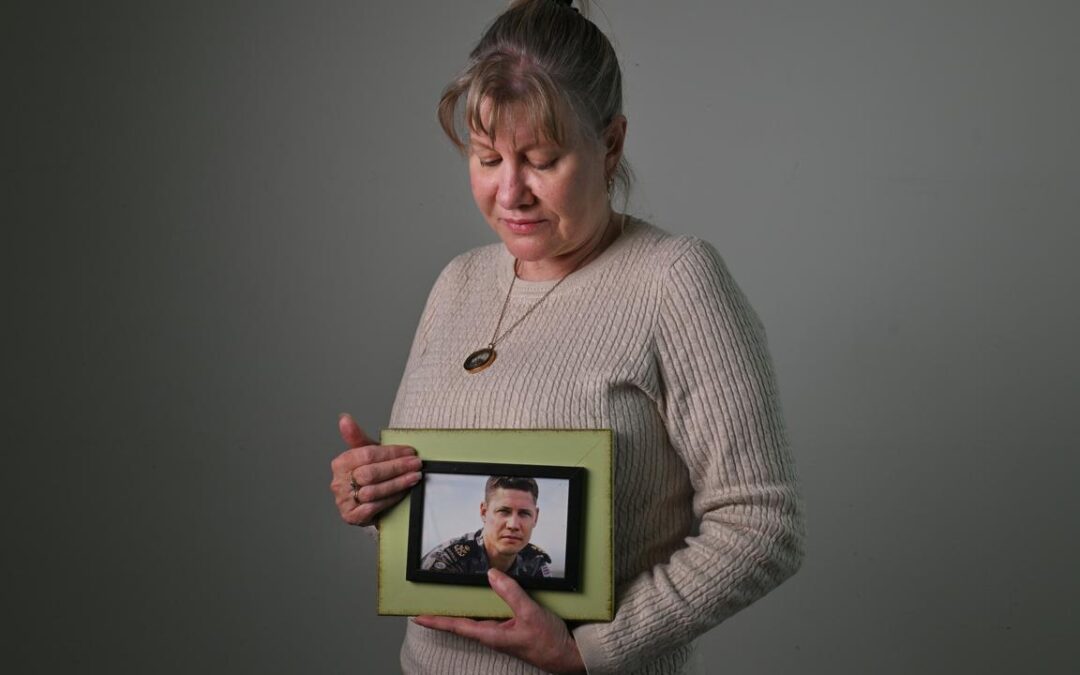
Fight goes on as defence suicide reforms slowly kick in
A mother who successfully lobbied for a royal commission into defence and veteran suicide says people are still fighting for justice and accountability as reforms are introduced.
Nine recommendations had been fully implemented, with a further 110 under way almost a year after the inquiry’s final report was handed down, Veterans’ Affairs Minister Matt Keogh told parliament on Thursday.
Julie-Ann Finney’s son, Royal Australian Navy petty officer David Finney, took his own life in 2019.
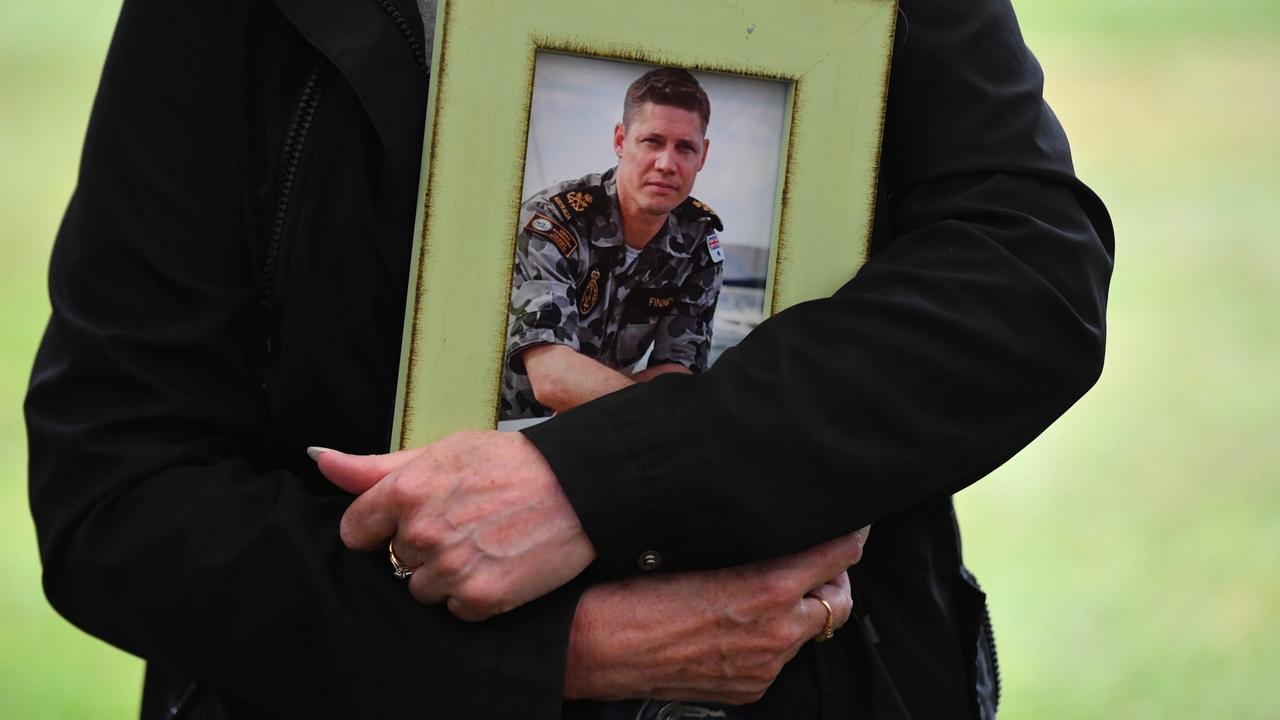
Carrying photos of her son, Ms Finney said she was a “little scared” as the progress gave her hope.
But there was still a long way to go with reforming defence culture, she said, standing by the call “don’t enlist until it’s fixed”.
“There’s still so much bullying going on and people are still fighting for justice and accountability,” Ms Finney said.
Mr Keogh said the government wanted Australians to join the military and know they and their families would be looked after.
“We will continue to do what’s right to take action on the royal commission as quickly as we can,” he said.
“It’s the least we can do.”
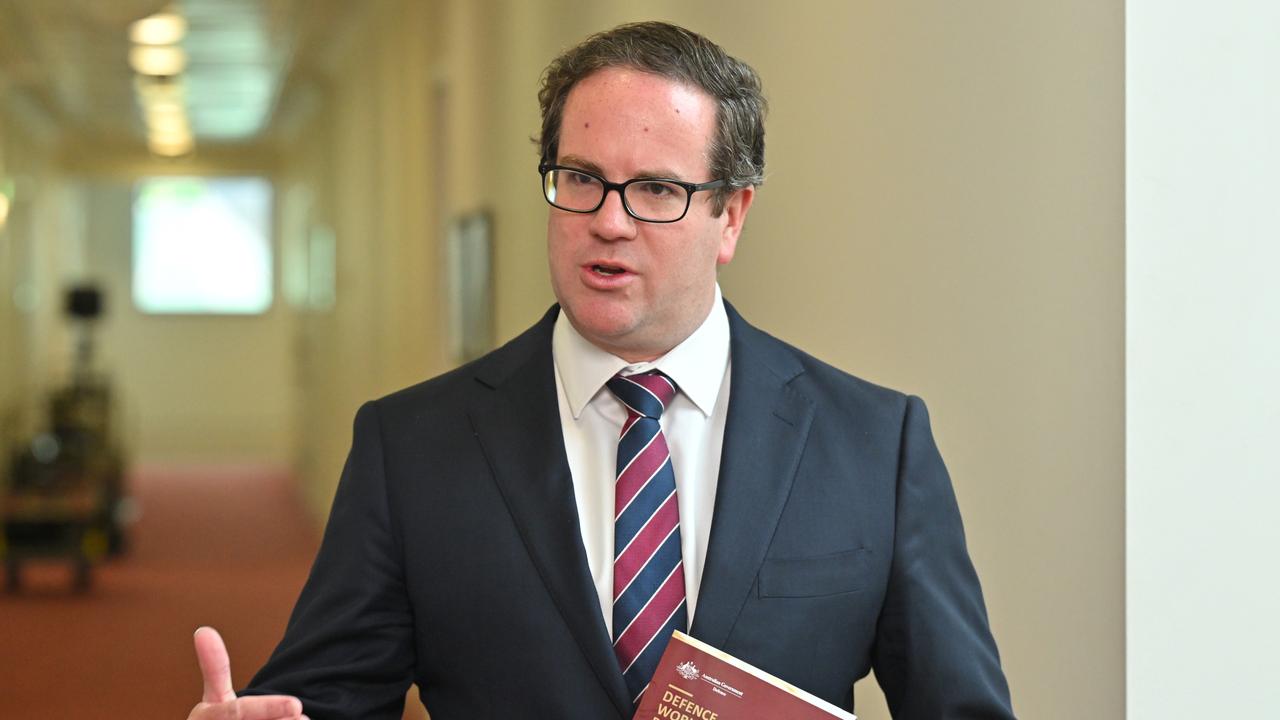
Labor provided its response in December, accepting the overwhelming majority of the commission’s 122 recommendations.
A task force set up in 2024 to guide reform found four priority areas, such as establishing a Defence and Veterans’ Service Commission and addressing military sexual misconduct.
The commission, legislated within three months of the government’s response, will receive $44.5 million across four years and lead implementation of other recommendations.
It will be operational by the end of September, as the government recruits a commissioner to head the body.
Sexual misconduct remained a “systemic” issue for the Australian Defence Force, with the government agreeing to a standalone inquiry into the issue.
Measures that will allow defence force personnel convicted of sexual crimes to be booted from the military would be in place by the end of 2025, Mr Keogh said.
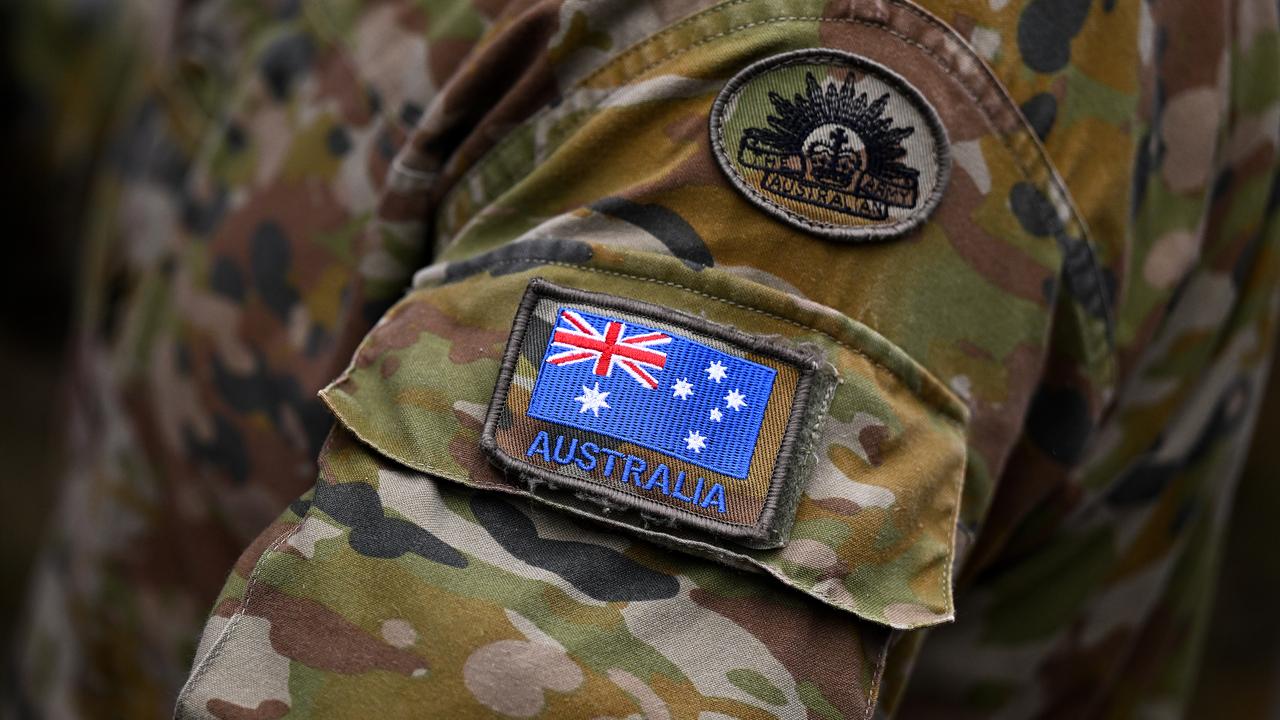
Work continues to ensure troops convicted of serious crimes during their military service get a civilian record of their offending.
This involves co-operation between civil agencies and government departments to feed records into the national police reference system.
Opposition veterans’ affairs spokesman Darren Chester accused Mr Keogh of “putting lipstick on a pig”.
“It was extraordinary that the minister came in here and endeavoured to pretend this is a good reform when it actually disenfranchises our veterans and their families,” he said.
Mr Chester told parliament he agreed with the broad themes in the royal commission, but was concerned its findings risked a false narrative of “despondency, desperation and helplessness”.
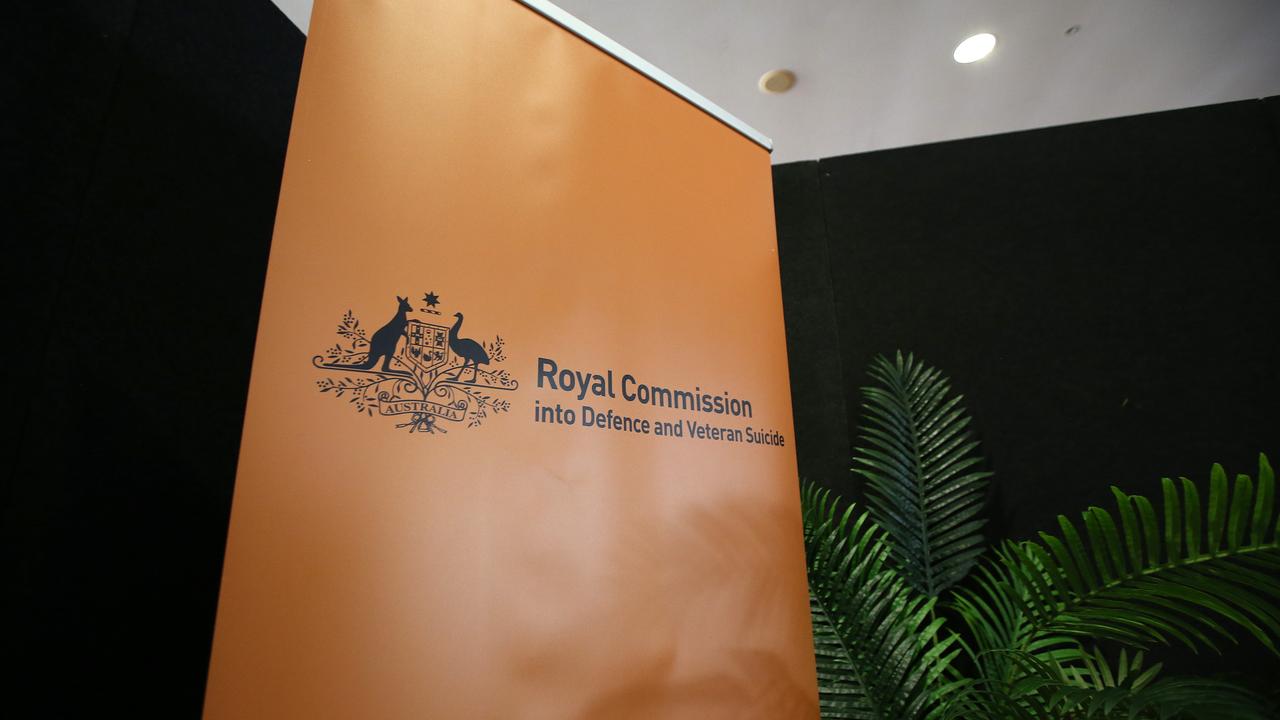
Greens defence spokesman David Shoebridge said he did not think anyone could be confident cultural changes had taken place.
“My office continues to hear from current and former members of the ADF who are being bullied, who have been belittled, who are not being heard when they’re making complaints about sexual violence in the ADF,” he said.
“But I think it’d be wrong to say no progress has been made.”
Following the royal commission, an independent inquiry by the Inspector-General of the Australian Defence Force began in 2024 into claims the military justice system had been “weaponised” to cause harm to some personnel.
The royal commission found 1677 serving and former serving defence personnel had died by suicide between 1997 and 2021 – more than 20 times the number killed in active duty during the same period.
Lifeline 13 11 14
Open Arms 1800 011 046
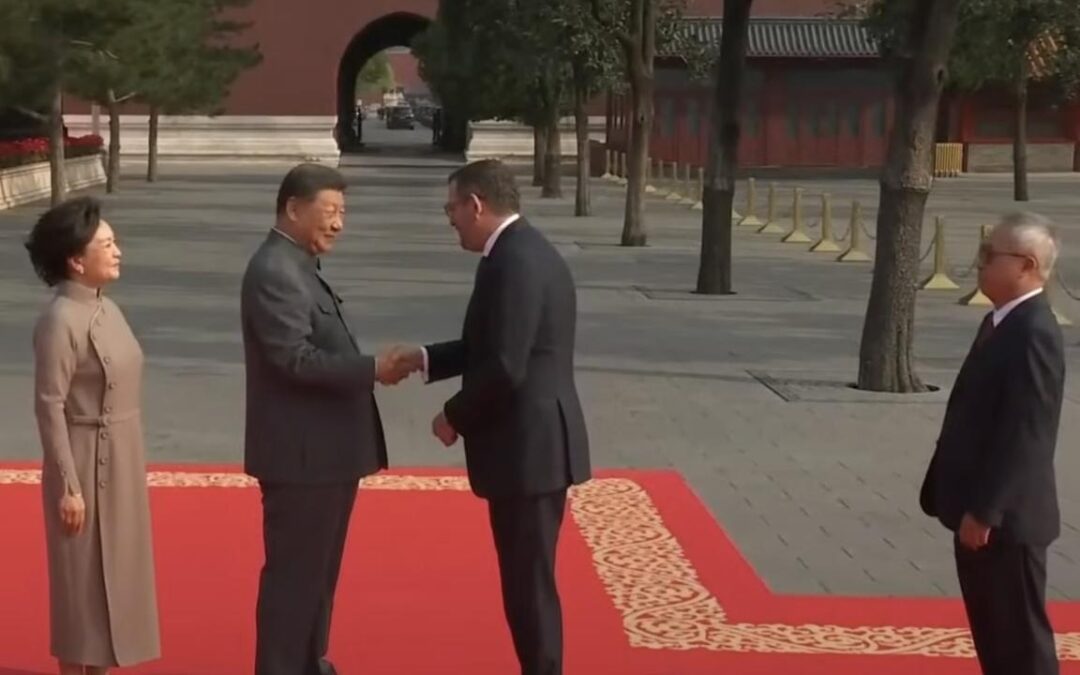
Daniel Andrews breaks silence on China parade outing
Former premier Daniel Andrews has defended a controversial visit to China to attend a military parade alongside dictators despite criticism from both sides of politics on the optics of his attendance.
The former Victorian leader attended a parade in Beijing on Wednesday to mark the 80th anniversary of the end of the Second Sino-Japanese War and World War II, alongside Russian President Vladimir Putin and North Korean dictator Kim Jong-un.
Mr Andrews said his visit followed a formal invitation to the event.
He said while maintaining ties with China was important, he condemned the actions of other leaders who attended the parade.
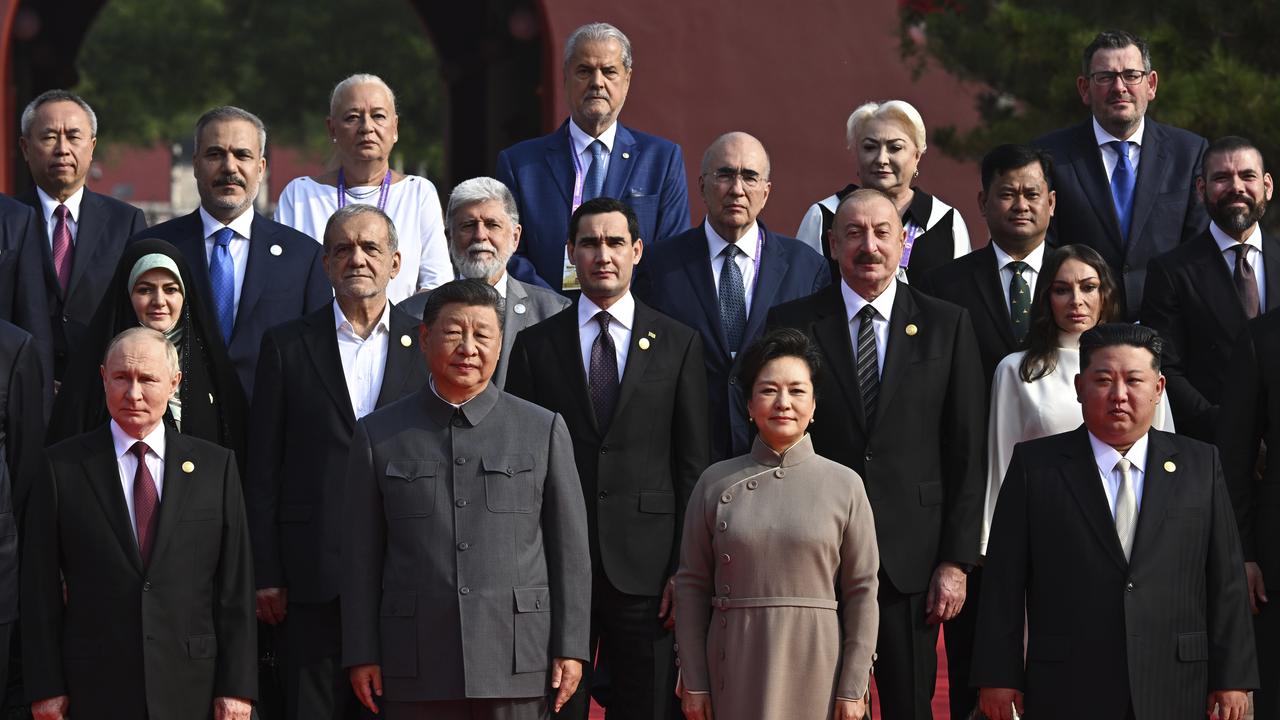
“I’ve said for years that a constructive relationship with China – our largest trading partner – is in Australia’s national interest and hundreds of thousands of Australian jobs depend on it. That hasn’t changed,” he said in a statement.
“Just so there’s no conclusion – I have condemned Putin and his illegal war in Ukraine from day one. That’s why he banned me from Russia last year.”
Mr Andrews criticised Iran in the statement, after the Middle East nation’s leader attended the event.
“My support for Israel and Australia’s Jewish community has been outspoken and unwavering and I unequivocally condemn Iran for its attacks on Australia, Israel and elsewhere around the world,” he said.
He said the event was a chance to meet with leaders in the region, such as former New Zealand prime ministers John Key and Helen Clark.
The visit to China attracted criticism in federal parliament, with the opposition urging Prime Minister Anthony Albanese to condemn Mr Andrews for his appearance.
Mr Albanese said he was not responsible for Mr Andrews’ actions.
He said the coalition was “delulu” (slang for delusional) for questioning why he had not condemned the former premier.
“I am not responsible for what every Australian citizen does,” he told parliament on Thursday.
“What I am responsible for is what our government does.”
Federal Opposition Leader Sussan Ley continued the coalition attack on Mr Andrews.
“Today I once again unequivocally express the coalition’s utter condemnation of former premier Dan Andrews’s attendance at the CCP military parade, where he stood with dictators, despots and war criminals like Vladimir Putin and Kim Jong-un,” she told parliament.
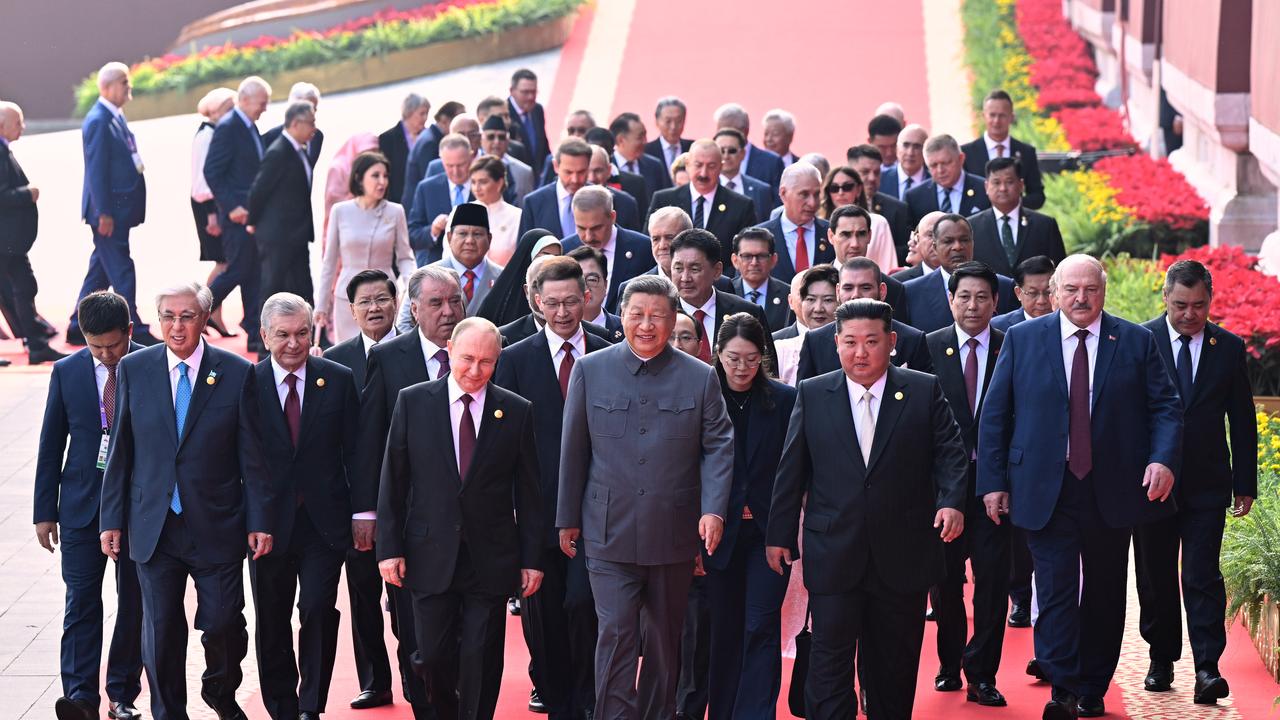
Mr Andrews’ successor, Jacinta Allan, who will travel to China for trade talks later in September, backed him.
“It is good for Victoria that Daniel Andrews is held in such high regard by the people of China,” she said on Thursday.
“Victoria is an old friend of China and these connections are so valuable for our state.
“I’m looking forward to building on this connection by leading a trade mission to China this month where I’ll meet with business, government, educators, and communities and launch Victoria’s new China strategy.”
Victoria has a sister state relationship with China’s Sichuan province. A number of councils have sister city relationships with other centres.
Ms Allan, who faces a state election in 2026, did not directly address the television footage and agency photographs of Mr Andrews with Mr Putin and Mr Kim and other leaders.
Deputy Premier Ben Carroll was far more critical, questioning if it was worth standing behind the Russian and North Korean leaders for “self-interested business purposes”.
“I think for the vast majority, myself included, the value judgement (is) it’s not worth that photo,” he told the Nine Network.
“It’s not something I would have done.”
Former Queensland Labor premier Annastacia Palaszczuk said on Wednesday Mr Andrews’ parade appearance was “a bridge too far”.
Rudd-era foreign minister Bob Carr was in Beijing for the commemorations but decided not to attend the parade because he thought it would be “extremely boring”.